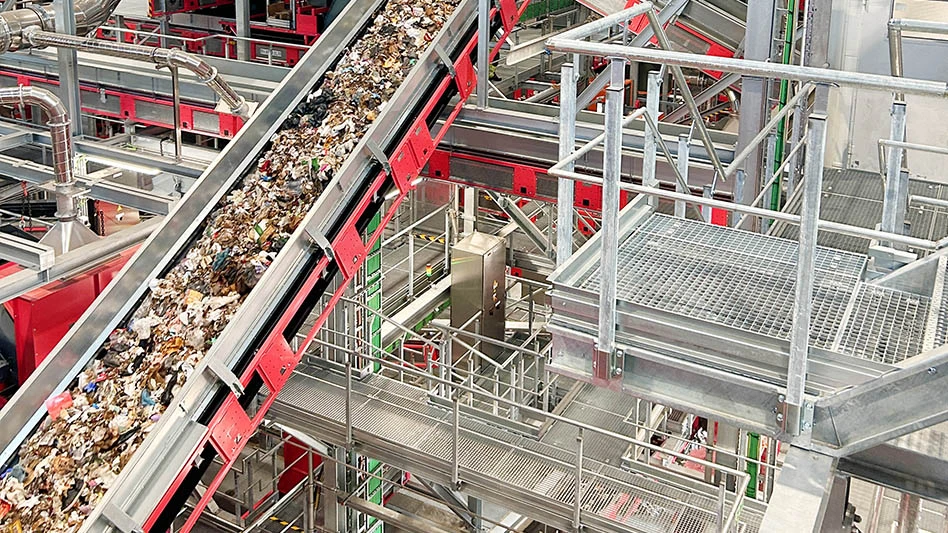
kyrychukvitaliy | stock.adobe.com
Paris-based Reju has opened its first operating unit, Regeneration Hub Zero, in Frankfurt, Germany.
Reju, which was incorporated 12 months ago and is owned by engineering and technology company Technip Energies of France, says the site is expected to begin deliveries in 2025.
RELATED: A volatile catalyst
Reju uses technology co-developed in joint venture with IBM and Under Armour as well as Technip Energies’ global engineering and technology integration expertise to create a new circular system and infrastructure for recovering, regenerating and recirculating end-of-life textiles at scale, starting with polyester.
Technip Energies, IBM and Under Armour have been working together since 2021 in a joint venture to bring VolCat, an IBM technology for rejuvenating end-of-life polyethylene terephthalate, or PET, packaging and polyester fabric, to industrial scale.
VolCat allows the selective breakdown of polymers that IBM first applied to technologies like semiconductor lithography and microelectronics packaging. Reju intends to use this technology to address hard-to-recycle polyester garments and PET packaging lost to the waste stream today. With this technology, acting as a molecular sorter, PET could be regenerated infinitely, according to the companies.
The company says it will guarantee textile-to-textile traceability from end-of-life textiles that would otherwise be buried, burned or dumped. The end product, Reju Polyester, has a 50 percent lower carbon footprint than virgin polyester, according to the company, which says it is committed to bringing a product to market that is demonstrably cleaner and can be regenerated infinitely.
To enable this new structure, Reju is joining with upstream partners to recover, collect and sort textiles, creating a circular textile system.
“We’re starting with the most urgent problem in textile waste—polyester,” Reju CEO Patrik Frisk says. “The world produces 92 million tons of textile waste each year, yet less than 1 percent is recycled. It is a system that extracts finite resources, creating textile waste with no responsibility for end of life. Reju is going to change that by unlocking a new system through critical partnerships around the world. We will build infrastructure, scale technology, comply with regulation and, in the end, help the textile industry evolve and enable a change in behavior. Our Regeneration Hub Zero in Frankfurt is a significant milestone, showcasing how this advanced technology addresses the global textile waste problem.”
Frisk, an industry veteran and former CEO of Under Armour Inc., CEO of Aldo Group and executive of VF Corp., leads the company with Alain Poincheval, chief operations officer of Reju and a 35-year executive of Technip Energies.
“Technip Energies brings over 65 years of engineering experience,” Poincheval says. “We are present in 34 countries. It has proven its expertise in accelerating climate solutions, combining engineering and construction capabilities with technological know-how as it drives towards a less carbon-reliant economy of tomorrow.”
Latest from Waste Today
- US Senate backs reduced cuts to EPA
- ELV Select Equipment, Reworld aid NYPD in secure firearm disposal
- Waste Connections announces Q2 results
- Returnity and Cosmoprof to address reusable bag waste
- SWANA releases report on aging WTE facilities
- New economic assessment reveals cost benefits of California’s SB 54
- Premier Truck Sales & Rental opens new facility
- TeknTrash Robotics, Sharp Group partner on humanoid robot pilot





